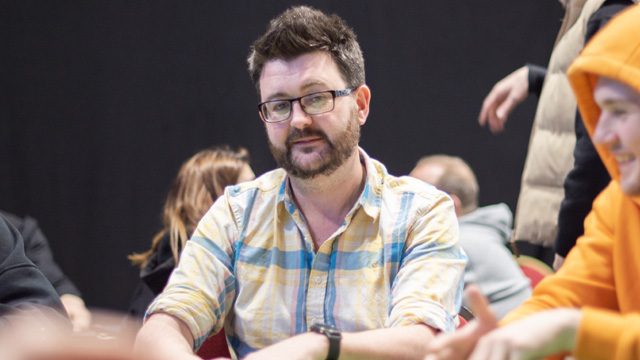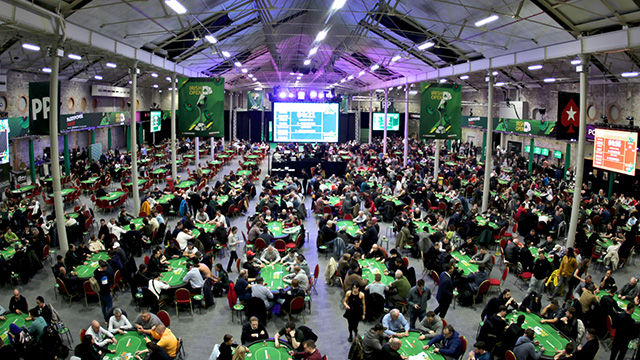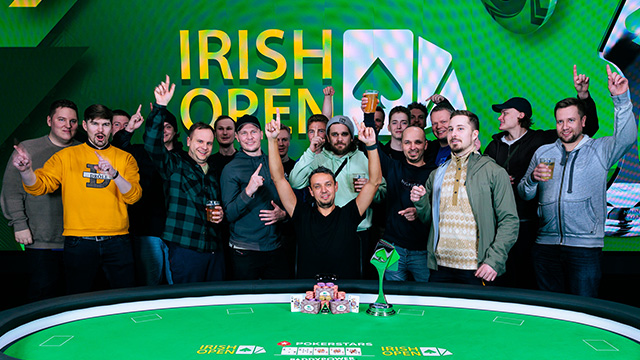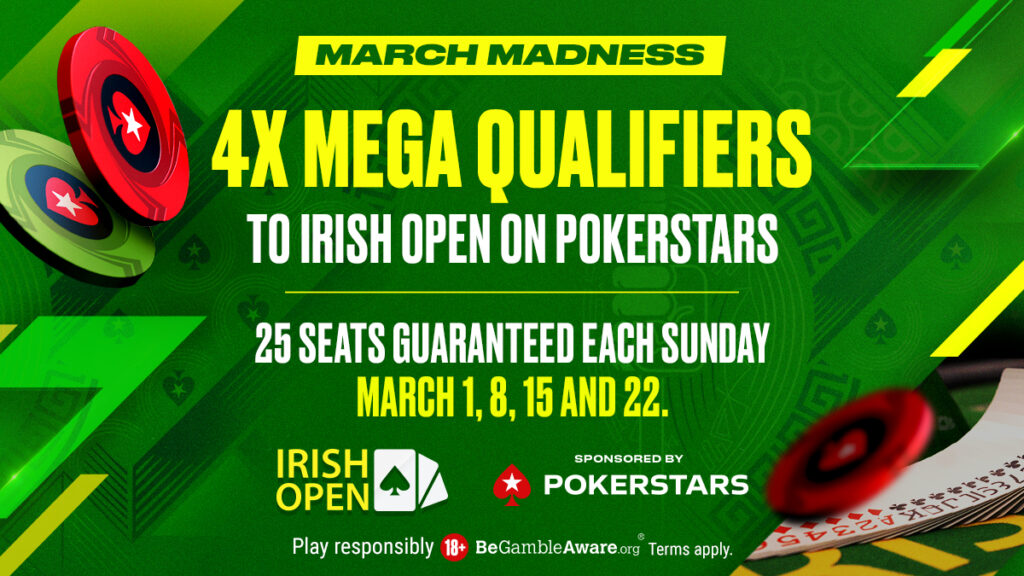
These days there are so many different ways to get involved in poker, with online poker taking the gambling world by storm.
However, live poker is the original form and is the basis for all the formats we see today – which is why having a live poker strategy is essential to success.
Rather than playing against many other people across multiple tables on a computer, live poker tournaments offer players the chance to compete in the traditional fashion, in-person and at just one table, such as at the Irish Poker Open.
Online live poker is now an option and provides the opportunity for players who can’t make it to a table to compete online.
If you are looking to play live poker online or in-person, then we have five key live poker tips to keep in mind. We’ll take a look at live poker playing strategy with poker tips for beginners and tips for poker players who have a bit more experience.
Check out our live poker tips below.
1) Choose the right starting hand
One of the best poker tips for those who are newer to live poker tournaments is one that encourages patience and game management.
When first taking to the table it can be tempting to want to be involved straight away and play every hand, but this isn’t a great tactic for winning and making money.
The cornerstone of any great live poker player’s game is knowing which hands to play. Passing up on lesser hands and cashing in when you find yourself with a particularly strong one is the foundation of any prolific live poker playing strategy.
If, for example, you find yourself with a pair of aces, then this would be a sitiuation where it is wise to play. However, if you are dealt a worse hand such as any unpaired, unsuited, and unconnected cards of a low rank that can’t form a straight, then it would be wise to fold.
It is unlikely that a beginner will be able to outwit more experienced players, so folding is the sensible option, while more expereinced live poker players may choose to try and bluff their way through a bad hand.
2) Play your position
Live poker is unique in the sense of it taking place at one specific table, rather than playing across multiple games online. The position which you occupy at the table is absolutely crucial to developing a succuseful live poker strategy.
The later your position at the table, meaning the nearer you are to the button, the more information and potential options you are able to gather before your turn comes around. This gives you far more control than the earlier players and can be one of the biggest advantages you have in a hand.
This increased control and information can often lead to clearer thinking and better decision-making, so playing late is very suitable for beginners as they can assess the situation in greater depth.
3) Develop multiple playing styles
When you’re playing in a live poker tournament the last thing you want to be is predictable. Many of the greats of the game thrive on their ability to adapt to different situations, take advantage when things are going their way and avoid getting flustered when things go against them.
Being able to adopt a certain live poker strategy in a variety of situations is key to being successful. Playing aggressive can be very tempting for newer players who simply want to be involved in the big moments, but it is not always the right thing to do.
Playing more passive and calling more often can be a good strategy to avoid getting flustered, as it puts the ball in the other players’ court when it comes to deciding the direction of the game.
Working out others’ play styles and being able to adapt your strategy according to your opponent is a great initial skill to master. Less experienced players should firstly develop a good table image and work out their opponents before they begin to play looser and get involved in more hands.
4) Eye contact is key
Now we get into the real nitty-gritty of high-level live poker strategy. Of course this only applies when playing live poker rather than live online poker, as you have to be sitting round the table in person with other players in order to make the most of eye contact tactics.
Poker is as much a game of mentality and bluffing as it is luck, and eye contact is key to this. The standard thought is that if a player attempts to stare someone out after betting, they are more likely to be bluffing as they want to intimidate their opponent out of calling.
You can use this presumption to your advantage. Eye contact patterns tend to work in pairs. One may choose to increase eye contact when they have a strong hand, as they feel less pressure and are able to do so, whilst reducing eye contact when bluffing as it may cause them to get flustered.
It also works in reverse, so in order to be successful in live tournament poker it can be key to spot any eye contact tendencies from other players, making them easier to read if they are consistent in their behaviour. This is why many poker players wear sunglasses during play so that opponents cannot see their eyes
5) Chip-handling
Your chips can be the perfect prop in order to express confidence, or a lack thereof in your hand, potentially helping you to bluff and throw players off the scent, causing them to play differently and potentially to your benefit.
Chip-handling is almost always used to bluff when one has a weaker hand than they want. Subtlety can range from merely placing a hand near your chips on the table, to almost pushing them as if to call a bet.
This can influence the actions of those playing before them. When waiting to play, if you have a weaker hand, you may choose to place your hands on and even push your chips slightly forward in order to give the impression that you may be interested in calling or betting, to try and put an opponent off betting.
Similar to noticing patterns in eye contact, noticing consistent chip-handling tendencies can help predict what another player may do. If you are able to tell that a player is bluffing with their chip handling and can factor out the idea that they’ll raise, then you’ll be in a better position to value-bet in situations where you otherwise may not have. If a player can shuffle their poker chips it often indicates they have spent a lot of time playing poker live and should be treated with respect, though the opposite is true as well.
6) Think in ranges not hands
Getting into the mind of your opponent is one of the keys to being successful in live poker tournaments and essential to any live poker tournament strategy – and thinking about what cards they may hold is a huge part of that.
However, it is important not to let instinct take too much of a hold in trying to predict exactly what hand an opponent may hold. One way to ensure this is to think in ranges, as opposed to specific hands.
This means looking at a situation and analysing a whole range of hands which the opponent could potentially have, such as a flush, bottom pair or ace-high. This is more effective than letting gut instinct take over and trying to predict that the opponent will specifically have an ace and jack of hearts.
Trying to play with your gut, rather than your mind, is not usually an effective strategy and thinking in ranges rather than specific hands can help to avoid this.
Find out more about the Irish Poker Open here.






